Club Curriculum Building a Better Goalkeeper eBook
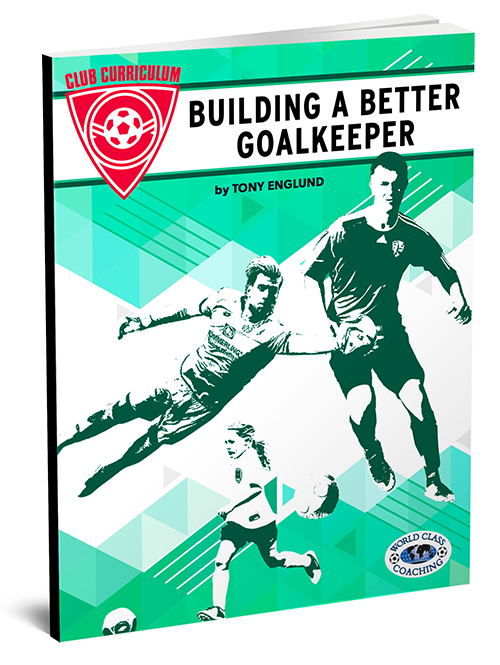
Or view in easy-to-read web pagesPART ONEPART TWOPART THREEPART FOUR
Continue reading
Or view in easy-to-read web pagesPART ONEPART TWOPART THREEPART FOUR
Continue reading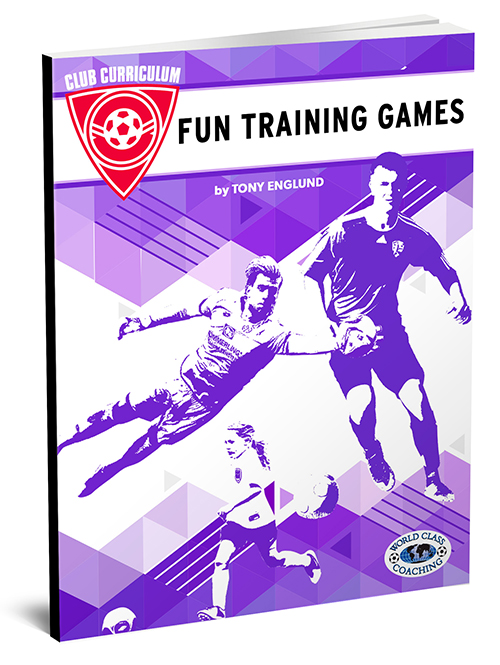
Or view in easy-to-read web pagesPART ONEPART TWOPART THREEPART FOUR
Continue reading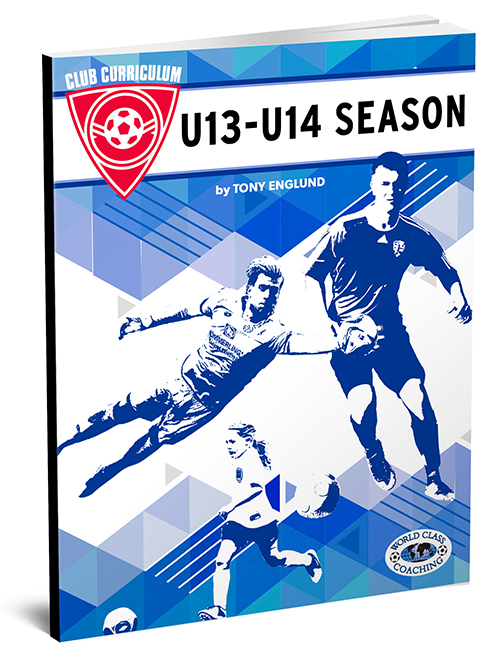
Or view in easy-to-read web pagesPART ONEPART TWOPART THREEPART FOUR
Continue reading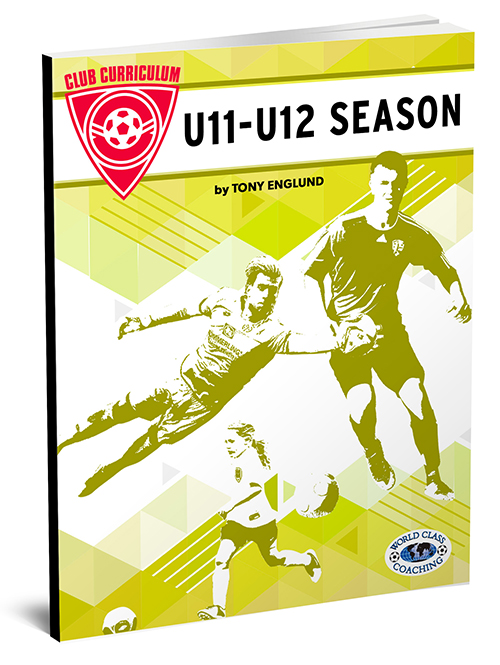
Or view in easy-to-read web pagesPART ONEPART TWOPART THREEPART FOUR
Continue reading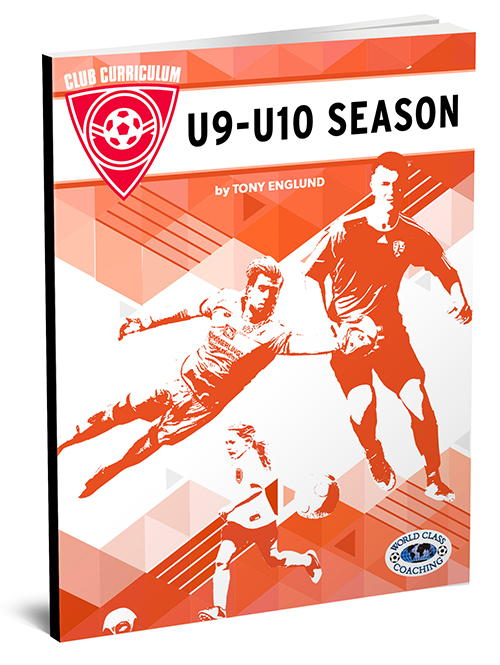
Or view in easy-to-read web pagesPART ONEPART TWOPART THREEPART FOUR
Continue reading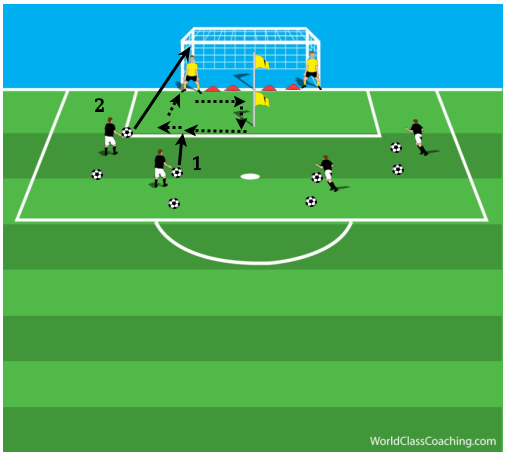
By Tony Englund - Experienced, advanced goalkeepers sometimes fail to train on their edge if they are continually subjected to the same, rote technical training exercises. An engaging, challenging method of combating this complacency is to put the goalkeeper in an environment where they are forced to make multiple saves in tight, particularly where there is
Continue reading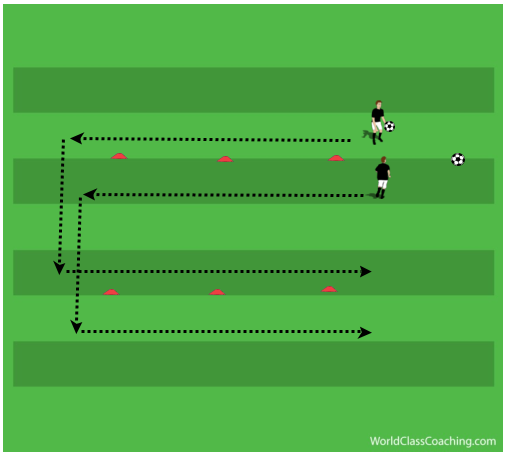
By Tony Englund - Goalkeeping warm-ups typically feature isolated handling and footwork exercises, and one of our points of emphasis in our club setting is to roll these two elements together in the warm-up to create more efficient and realistic training. This article features a trio of simple, favorite means of mixing these critical elements in
Continue reading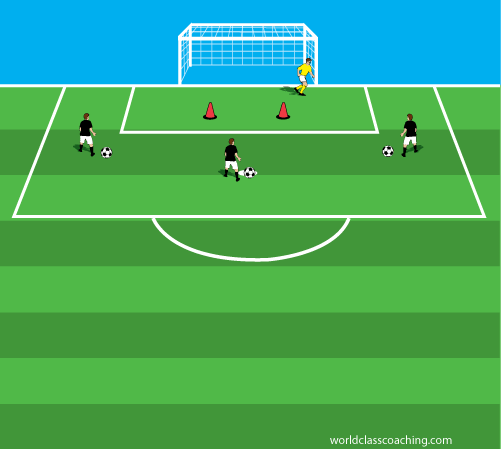
By Tony Englund - From the middle of the goal step out four yards and make a three-yard wide goal with two cones. The drill begins with the goalkeeper standing on the first post with another goalkeeper standing six yards away at the corner of the six-yard box with the ball. The coach is positioned with
Continue readingBy Tony Englund -
Goalkeeping warm-ups typically feature isolated handling and footwork exercises, and one of our points of emphasis in our club setting is to roll these two elements together in the warm-up to create more efficient and realistic training. This article features a trio of simple, favorite means of mixing these critical elements in the warm-up.
#1: Zig-Zag and Save
The goalkeeper does footwork through the
Continue readingBy Tony Englund -
When I give goalkeeper training sessions to coaches, many ask about teaching their goalkeepers to deal with break-aways. In the first of a two-part article on the subject, we looked at building the goalkeeper’s confidence in blocking and closing down. In this second portion, tips for dealing with the break-away situation in match-like situations will be shared.
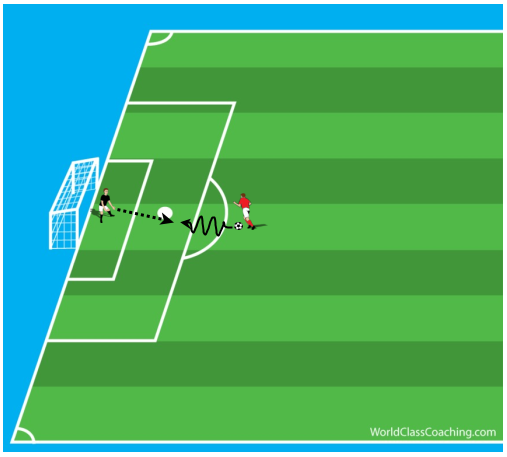
Break-Aways – Straight On The attacker starts his run from 25 yards before goal. To begin with, all break-ways are straight on to
Continue readingBy Tony Englund -
When I give goalkeeper training sessions to coaches, many ask about teaching their goalkeepers to deal with break-aways. In the first of a two-part article on the subject, we’ll look at building the goalkeeper’s confidence in blocking and closing down. In the second portion, tips for dealing with the break-away situation in match-like situations will be shared.
It is useful to invert the break-way situation as a teaching model, looking at the final, blocking save as a start point. Young goalkeepers in particular often hesitant to get into the feet of the attacker, though this gives them the
Continue readingBy Tony Englund -
Experienced, advanced goalkeepers sometimes fail to train on their edge if they are continually subjected to the same, rote technical training exercises. An engaging, challenging method of combating this complacency is to put the goalkeeper in an environment where they are forced to make multiple saves in tight, particularly where there is a recovery save involved. This article and the next in the series will offer a pair of scenarios where goalkeepers can be compelled to work on their edge and make multiple difficult, if confidence-building saves.
Meat Grinder: Multiple Save, Reaction Training
The base set up for this exercise requires a
Continue readingBy Tony Englund -
Among the more challenging tactical teaching topics for goalkeepers is helping them to control their area. There are numerous moments in the game when the goalkeeper’s ability or inability to eat up loose balls in the area can swing control of the game to one team or another. Crosses, through-balls and balls that fall loose to the ground in the area when the opponent is attacking all present challenges, as do back-passes when the ‘keeper’s own team is in possession. In article #1, key teaching cues for teaching the goalkeeper to deal with crosses were discussed. This article will take a look at the importance of through-balls and back-passes for the goalkeeper and the back line.
Technical Training for Dealing with Back-Passes
When we teach goalkeepers to deal with
Continue readingBy Tony Englund -
Among the more challenging tactical teaching topics for goalkeepers is helping them to control their area. There are numerous moments in the game when the goalkeeper’s ability or inability to eat up loose balls in the area can swing control of the game to one team or another. Crosses, through-balls and balls that fall loose to the ground in the area when the opponent is attacking all present challenges, as do back-passes when the ‘keeper’s own team is in possession. This article will take a look at the crossing and covering topics, and the next article (#2) will examine back-passes.
Dealing with Crosses
Because of the number of variables in any crossing situation (location of crosser; type and location of cross; number, angles and distance of potential defenders and finishers; weather (i.e. wind, rain) and the
Continue readingThis is an excerpt from the chapter "Dueling: 1v1 Play" of our new book by Tony Englund, Competitive Small Group Training
1 vs. 1 to Goal Point of Service - 1/3 field
Here player 1 checks to get service from any of the perimeter players and tries to beat the defender 2 and finish. Encourage the defender to play aggressively and to try to intercept service where possible and if the attacker does receive the ball, to deny the turn and shot. The attacker should be deceptive, showing to one side and then sharply changing directions and demanding service from another point. The middle pairing should be changed after one minute so that players are playing at speed throughout.
Variations